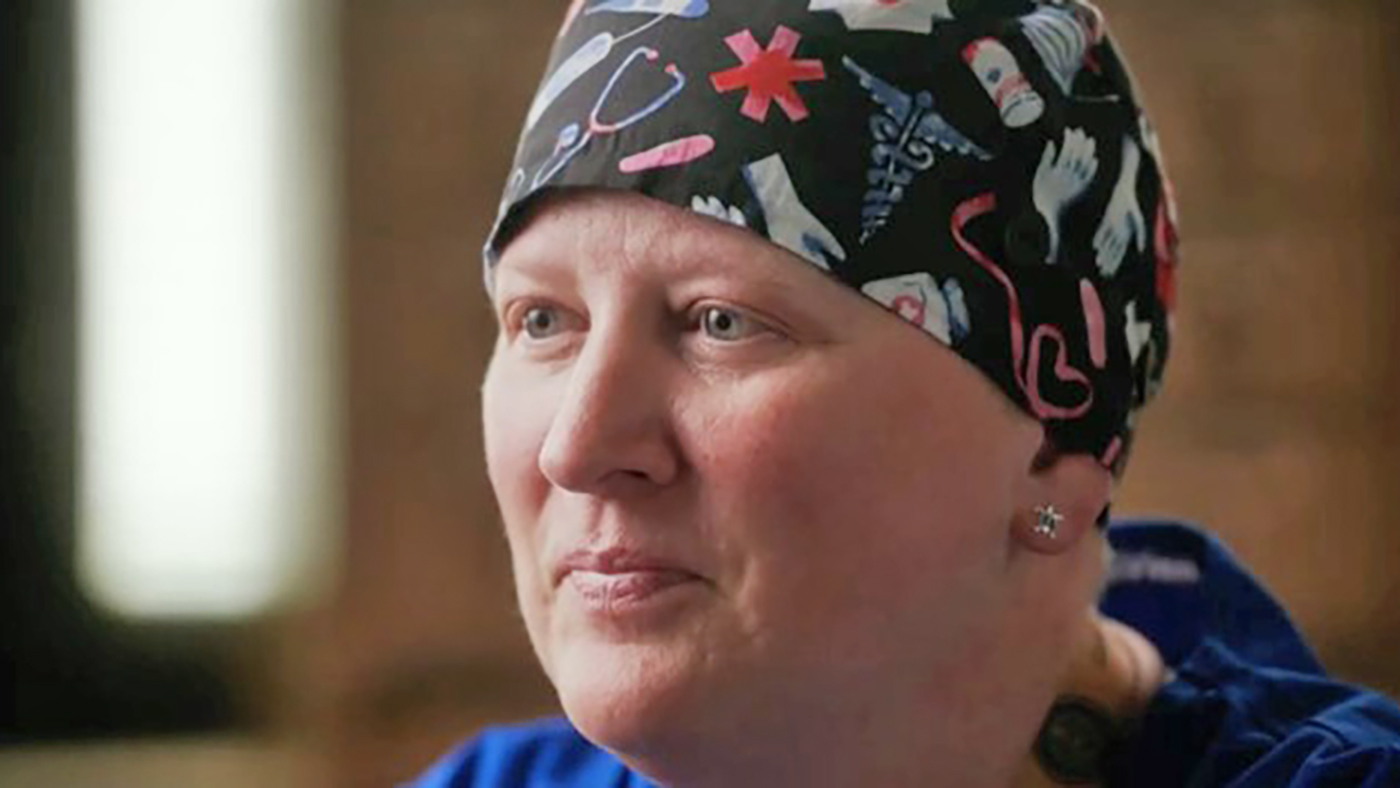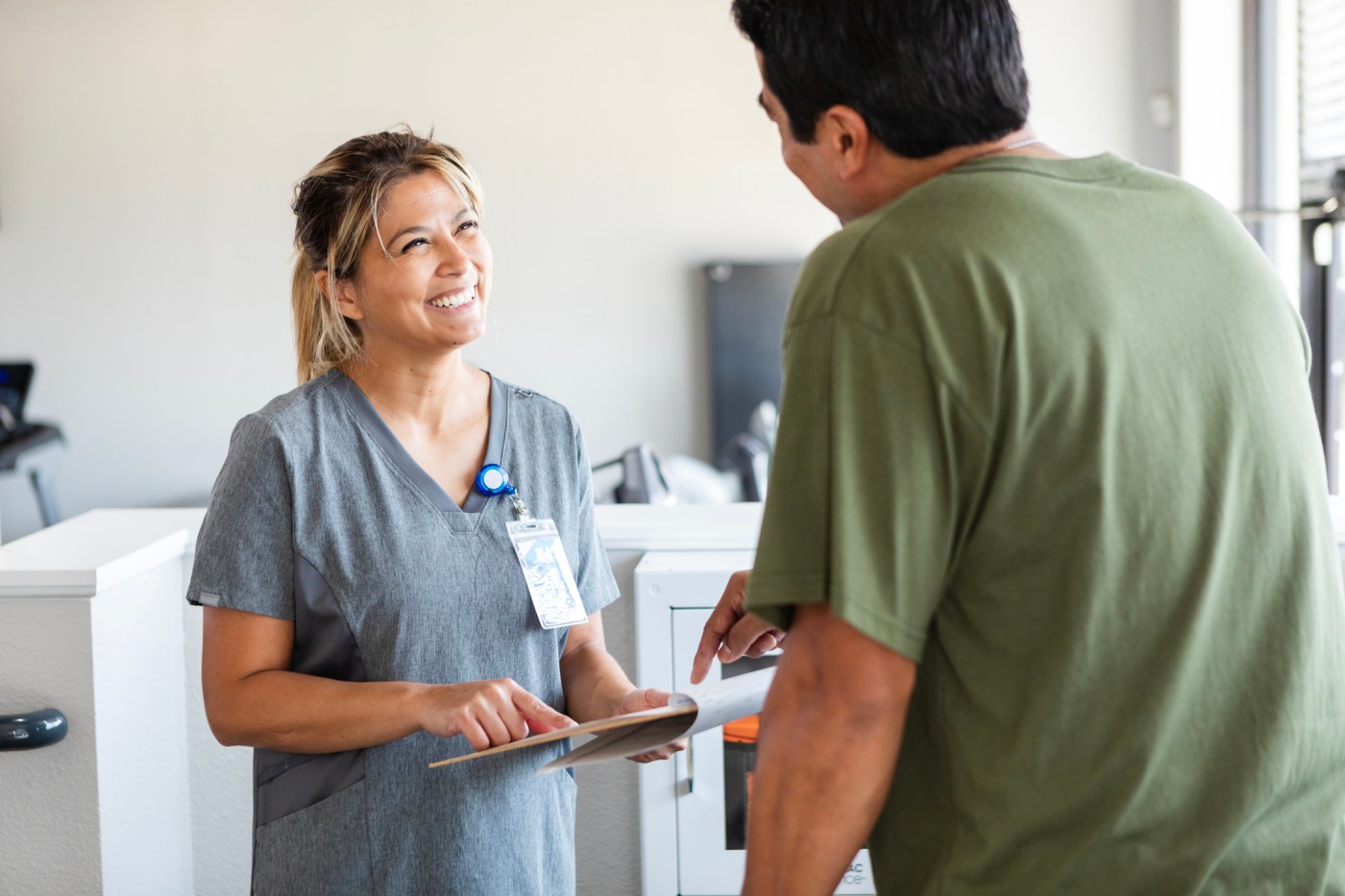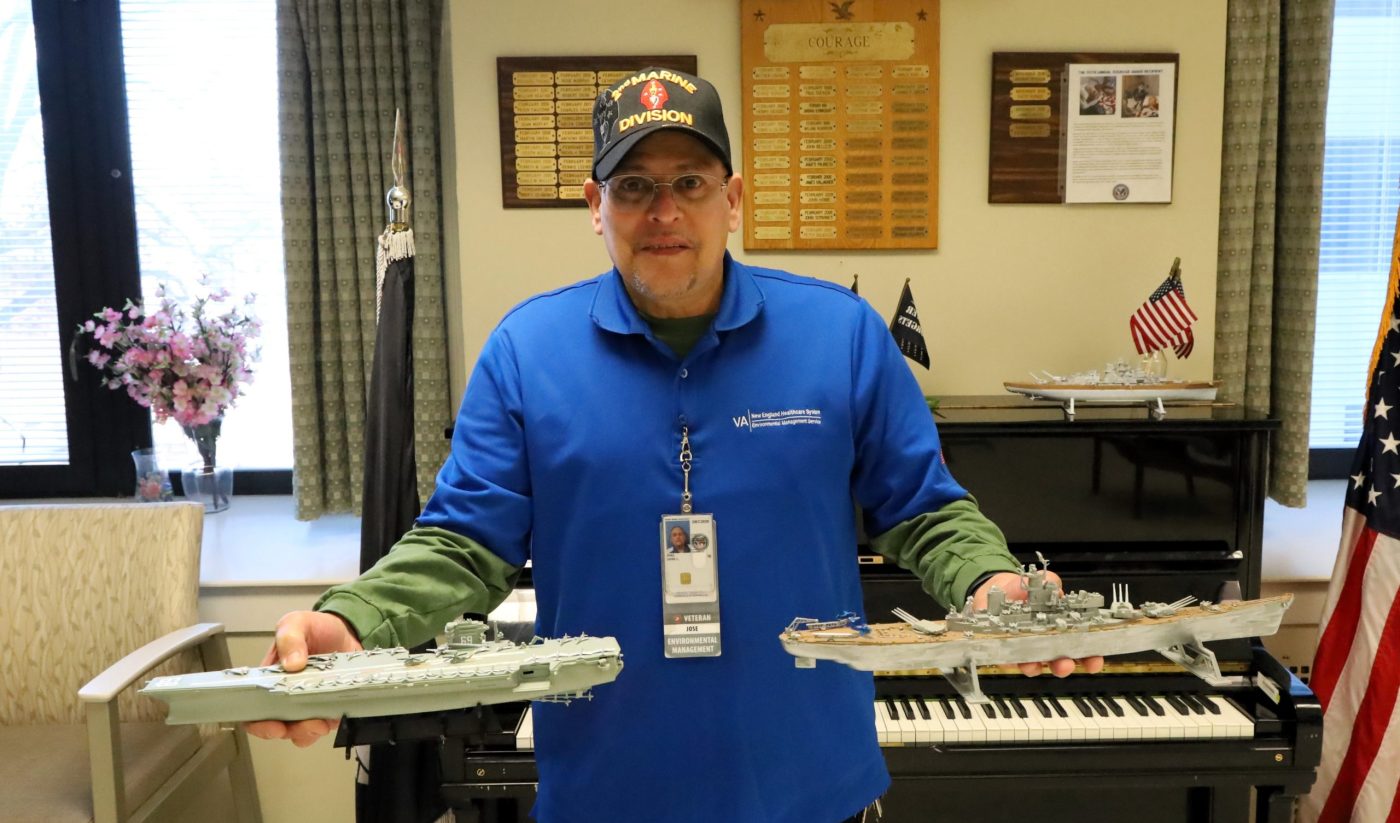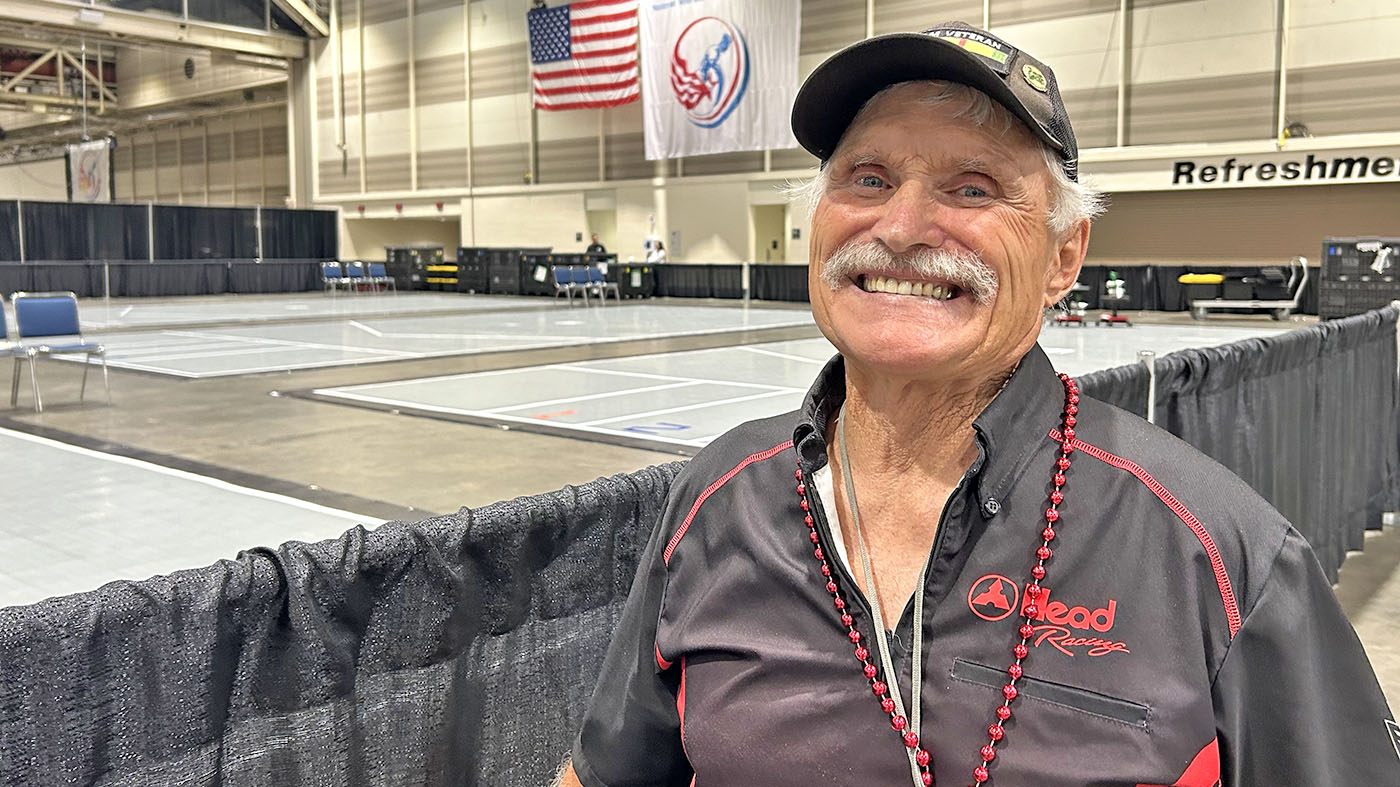At VA, breast cancer awareness is more than wearing pink ribbons. It’s about empowering individuals, especially Veterans and their caregivers, with the knowledge and resources to take charge of their health, know their risk factors and support those facing the diagnosis from treatment through recovery.
Take Army Veteran Michelle Terwilliger, a nurse practitioner case manager at Durham VA, who was diagnosed with invasive ductal carcinoma on her left breast. After years of caring for fellow Veterans, she was now the one searching for answers and help. “Being in health care and knowing all the things that cancer can involve, your mind jumps to the worst,” she shared.
Breast cancer is the second most common cancer among women in the United States, and over 1,200 Veterans enrolled in VA care are diagnosed with it each year. The good news is that the survival rate increases dramatically with early detection. Stage 1A (localized) breast cancer has a 99% survival rate if detected early, which is why regular breast self-exams, clinical breast exams and mammograms are vital.
Terwilliger’s experience reinforced her belief in VA care. “Everyone has been wonderful from primary care to radiology, like an extension of my family. I don’t know if I would have felt this supported outside the VA health care system.”
Supporting Veterans with best-in-class breast cancer care
The number of Veterans seeking breast cancer at VA is growing and there are several new and expanding support programs that aim to meet the needs of Veterans at risk of or faced with this diagnosis, including:
- Breast and Gynecologic Oncology System of Excellence (BGSoE): BGSoE provides coordinated, integrated and compassionate patient-centered cancer care, including virtual and high-risk clinics. Provides care coordination for Veterans who may need to navigate different health systems for their treatment.
- Male Breast Cancer: As of June 2024, male breast cancer is on the list of presumed service-connected disabilities due to military exposures under the PACT Act.
- High-Risk Breast Clinics: Offers high-risk breast clinics for Veterans who don’t have a cancer diagnosis but are at high risk because of genetic mutations.
- National TeleOncology (NTO): NTO brings world-class oncology care and services to Veterans regardless of where they live
- Cancer Care Genetics Services (CCGS): CCGS offers accessible cancer genetic counseling to Veterans, including personalized cancer risk assessments, interpretation of test results and information about cancer treatment options and what it may mean for your family members if you’re diagnosed with cancer. Watch the video Cancer Code to learn more about a Veteran’s experience with genetic testing during her breast cancer journey.
- Close to Me Novel Infusion Care Delivery Service: Close to Me provides anti-cancer therapy services at Community-Based Outpatient Clinics and patient homes.
- National Radiation Oncology Program (NROP): NROP prioritizes hands-on care for all ages and all types of cancer at every stage and it quickly adopts best practices that might result in shorter courses of therapy for Veterans.
- Virtual Peer Support Program: The first national virtual peer-led support group for Veterans undergoing treatment for breast and gynecologic cancers, providing a platform for support and discussion.
- Whole Health Library: Whole Health emphasizes mindful awareness, Veteran self-care and conventional and integrative approaches to health and well-being. A Whole Health approach to cancer care incorporates nutrition, dietary supplements, yoga, meditation, acupuncture and other integrative and complementary practices to empower patients and their families.
Learn more about VA cancer care.
Visit My HealtheVet to speak with your health care team, so together you can manage your health.
Topics in this story
Link Disclaimer
This page includes links to other websites outside our control and jurisdiction. VA is not responsible for the privacy practices or the content of non-VA Web sites. We encourage you to review the privacy policy or terms and conditions of those sites to fully understand what information is collected and how it is used.
More Stories
One strategy credited for the improvement is a focus on building trust and stronger patient-provider relationships.
Army and Marine Corps Veteran started making models after being hospitalized at Connecticut VA.
Veteran Hank Ebert is a bit of a superstar in the National Veterans Wheelchair Games. He has been attending since 1993.







The VA says my breast cancer was caused by Agent Orange. But their services are horrible. Not one therapist is trained to treat lymphedema- caused by lymph node removal during mastectomy.
It’s pitiful and discriminatory what the VA is NOT doing for women breast cancer patients.